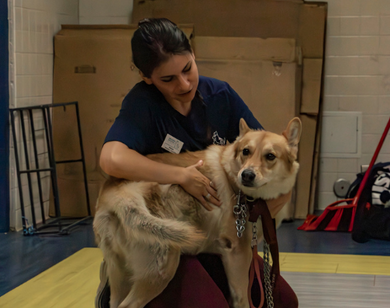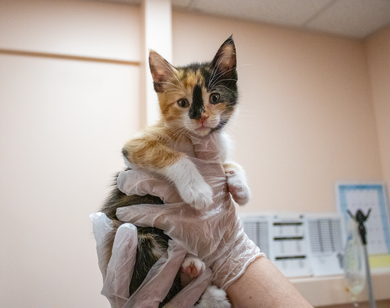PHOENIX (3TV/CBS 5) -
Animal advocates say important consumer protection provisions in Arizona’s new puppy mill law have been rendered moot after the U.S. Department of Agriculture took down its animal welfare inspection website.
The law, which took effect in August 2016, requires pet stores to display breeder information on every animal they sell so that consumers can check the breeder’s inspection history against USDA records. The law even requires pet stores to display the USDA website where those inspection reports can be found.
But that website, which is referenced in the Arizona law three times, was taken down last week.
In a statement, the USDA cited ongoing litigation and the need to "protect individual privacy," adding that "these decisions are not final."
Animal welfare groups and researchers have widely criticized the move.
"We use those records to help inform people how bad the conditions are in these puppy mills that we’re rescuing from," said Michael Morefield of the Arizona Animal Welfare League. AAWL currently has 12 dogs up for adoption that were rescued from puppy mills.
"Now, we have no records to verify any of this information. We’re flying blind," he said.
Morefield said the database allowed activists to cross-check suspected puppy mill owners.
"Some of these people that run these puppy mills would get violations or complaints, shut down their mill, open it back under a different name," he said. "They would look totally clean, but we would have years of records to prove they had violations in the past."
Arizona law prohibits pet stores from obtaining and reselling dogs or cats from a breeder with certain kinds of animal welfare violations. If the pet store knew, or should have known, about the violations, it faces civil penalties up to $1,000. Repeat offenders face penalties up to $5,000 and a ban on selling animals from any private dealer.
The law specifically grants pet stores immunity from these penalties if they check breeders in the USDA website and find a clean inspection history. Without the website, pet stores must only act "in good faith," which Morefield suggested might be as little as verbally asking breeders about any recent violations.
"Now, the only thing [consumers] have is the store or breeder telling you information with nothing to back it up," he said.
When Gov. Doug Ducey signed the puppy mill bill last year, he touted its consumer protection benefits.
"SB 1248 actually strengthens penalties for pet store owners who do not take measures to ensure that the animals under their care are from a licensed, safe, sanitary and humane place," Ducey wrote. "If there are bad actors in this state, they will be held accountable under the law."
A spokesman for the governor, Daniel Scarpinato, said he was not aware of the removal of the USDA website and needed more time to research the implications for Arizona’s puppy mill law.






